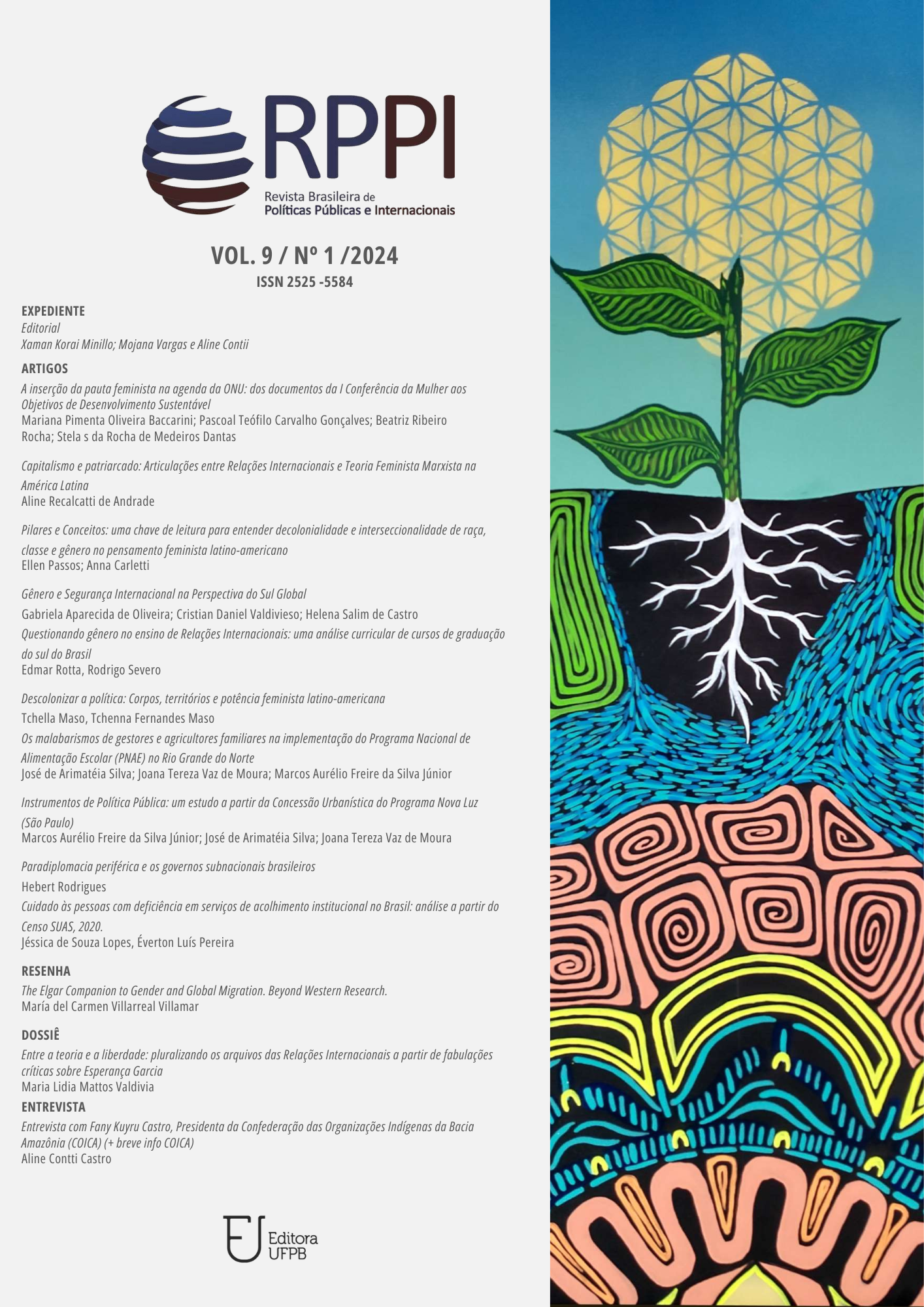Between theory and freedom
pluralizing the archives of International Relations from critical fabulations about Esperança Garcia
DOI:
https://doi.org/10.22478/ufpb.2525-5584.2024v9n1.65790Keywords:
Black feminism, Epistemology, Archive, Critical fabulation, Esperança GarciaAbstract
In this article, I seek to productively engage with the silence and violence contained in the available archives on the lives of Afro-Brazilian women in captivity by broadening and deepening the concept (and practice) of theorizing developed by black, post-colonial, decolonial, and post-structuralist feminists. Particularly, by questioning the archives of the discipline of International Relations considered legitimate and neutral, I seek to present other ways of conceiving epistemology through the relationship between black feminist literature, Saidiya Hartman's concept of critical fabulation, and the concept of critical interruption as proposed by David Kazanjian. Instead of trying to fill in the silences of the sparse colonial archive about the lives of black women in captivity, this exercise allows for a critical imagining of their ways of theorizing about the world around them by interrupting the dominant narratives about them, thus bringing other relationships, dynamics, and experiences as central to the epistemological production and, mainly, to the production of knowledge about the international. To carry out such a movement, I take as an imaginative exercise the scarce archive on Esperança Garcia, a black enslaved woman recognized by the National Bar Association of Brazil, Piauí section, as the first lawyer from Piauí.
Downloads
Downloads
Published
Issue
Section
License
Copyright (c) 2024 Maria Lidia Mattos Valdivia

This work is licensed under a Creative Commons Attribution 4.0 International License.
Autores que publicam nesta revista concordam com os seguintes termos:- Autores mantém os direitos autorais e concedem à revista o direito de primeira publicação, com o trabalho simultaneamente licenciado sob a Licença Creative Commons Attribution que permite o compartilhamento do trabalho com reconhecimento da autoria e publicação inicial nesta revista.
- Autores têm autorização para assumir contratos adicionais separadamente, para distribuição não-exclusiva da versão do trabalho publicada nesta revista (ex.: publicar em repositório institucional ou como capítulo de livro), com reconhecimento de autoria e publicação inicial nesta revista.
- Autores têm permissão e são estimulados a publicar e distribuir seu trabalho online (ex.: em repositórios institucionais ou na sua página pessoal) a qualquer ponto antes ou durante o processo editorial, já que isso pode gerar alterações produtivas, bem como aumentar o impacto e a citação do trabalho publicado (Veja O Efeito do Acesso Livre).




_.jpg)






.png)


.jpg)
_.png)
